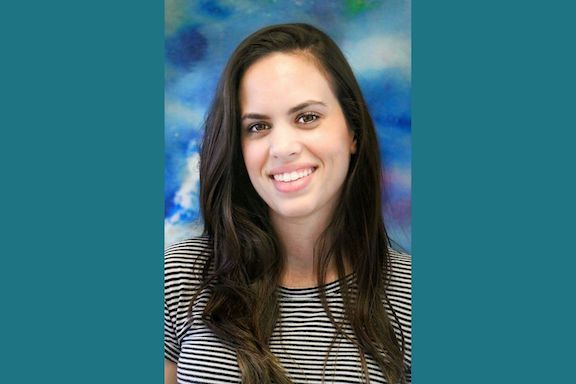For this Staff Highlight, we’re excited to shine a light on Elise Toro, a member of our incredible speech therapy team! Before we share our Q&A with Elise, here’s what our founder, Mandy, had to say:
“One of the things I appreciate about Elise is her consistently calm demeanor, which is comforting to children and families. She is also helpful, willing to step in whenever and wherever she is needed, and flexible – especially in terms of being able to work with children of all ages. But most of all, Elise is perceptive. When we discuss and problem-solve cases as a team, she observes, analyzes and then offers truly thoughtful and valuable insight. I’m grateful to have her on our team!”
Q&A With Elise Toro
How did you get into the speech therapy field?
I learned about speech-language pathology at a young age, when it helped a family member overcome a speech delay. Later, I had an experience shadowing a speech therapist and realized I wanted to pursue a career in the field when I saw the difference it made in the child’s life. What better skill to teach a child than how to communicate effectively!
What do you appreciate most about your role?
I appreciate building meaningful relationships with children and families, and I really value seeing children’s progress as they learn to communicate.
What stands out to you about working at ICT?
We take the whole child approach, making sure that each child is set up for success and working towards being the best version of themselves. We also work hand-in-hand with occupational therapists, so we’re able to maximize every therapy session by incorporating more than just speech therapy tools. Speech and language are components of effective communication, but there are many pieces to the puzzle which is why ICT’s multidisciplinary approach is so helpful.
What is an intervention or strategy that you find especially useful?
I try to target children’s goals through interactions that are meaningful to them, such as personal interests and favorite types of play. This approach allows me to work with each child in ways that engage, motivate, and feel functional for them. I am also trained in PROMPT© (Prompts for Restructuring Oral Muscular Phonetic Targets) and I really enjoy using it with children who have articulation or phonological processing challenges.
What is your top tip for parents?
Read to your kids! There is so much you can do with a book. Reading with children promotes attention, vocabulary, and prosody (intonation, tone, stress, and rhythm) of speech. Also, with little ones, there is sometimes a tendency to ask a lot of questions. But it can be hard for a child to constantly be put on the spot, especially when they don’t know the appropriate response. An alternate approach to asking questions that I like is to narrate what a child is doing, providing them with vocabulary and opportunities to expand on what I’m saying – both of which help to build early literacy skills.


Recent Comments